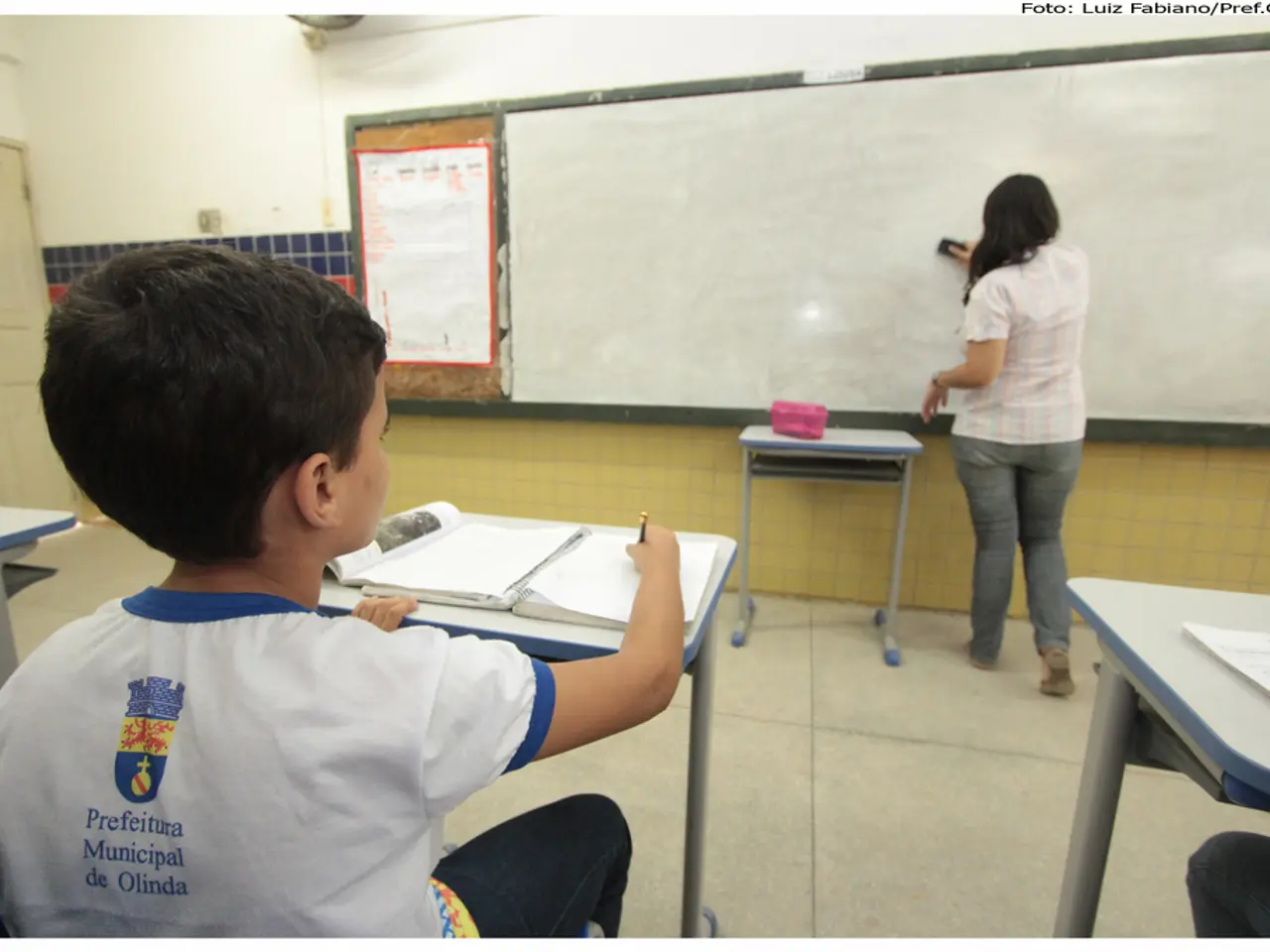Student Struggling with Misjudged IB Grades? A Compilation of Fair Academic Advocacy Strategies
In the International Baccalaureate (IB) Diploma Programme (DP), predicted grades play a significant role in university admissions decisions and conditional acceptances. These grades are estimates of final scores submitted by teachers, based on class performance, Internal Assessments (IA) results, and mock exams [1]. However, it's essential to remember that one grade doesn't define a student's future [6].
If a student believes they have been under-predicted, it's crucial to take action. Early communication about predicted grades is key to avoid issues [7]. Building a positive, professional relationship with teachers can increase the likelihood of accurate predictions, and actively engaging in class and asking questions can help teachers better understand a student's abilities [8].
Submitting Internal Assessment (IA) drafts early and incorporating feedback can improve predicted grades. If a student feels their predicted grade is unfair, they have the right to seek a review, but should do so respectfully and constructively [9].
The process for challenging an under-predicted grade typically involves the following steps:
1. **Appeal the Predicted Grade Within the Deadlines:** Students have until around mid-September after receiving their results to formally appeal their predicted grades. Timing is crucial to ensure the appeal is considered [5].
2. **Discuss with School Staff:** Start by speaking with your teachers, subject coordinators, or IB Diploma Programme coordinator. They can provide clarity and support in the appeals process, and may advocate on your behalf if your prediction seems unfair or inaccurate [2][3].
3. **School-Level Appeal and Support:** The school may have an internal process for reviewing predicted grades and may ask for evidence such as coursework, mock exam results, or teacher assessments.
4. **Request for Remarking or Re-evaluation:** If you believe your final exam paper was under-marked, you can apply for a re-evaluation after the official results are out. This is a separate process and often involves a fee, but may be worthwhile if a higher grade affects university admissions [3].
5. **University Admissions Considerations:** Remember that universities often consider predicted grades submitted for applications. If your predicted grade is lower than expected and you cannot immediately change it, discuss with your school counselor ways to strengthen your application or explore conditional offers.
6. **Formal Appeal Process (If Applicable):** In rare cases, if school-level efforts fail, some institutions have a formal appeal or grade review committee, but this varies by school and national IB procedures. Appeals beyond the school level may involve IB regional or international offices, but are generally reserved for procedural errors rather than disagreements over teacher predictions.
It's important to note that the IB does not accept appeals from students directly regarding predictions. Final IB scores can override poor predictions in many post-application updates [4].
In conclusion, challenging an under-predicted IB grade involves timely communication with your school’s IB coordinator and teachers, submitting an appeal before the mid-September deadline, and potentially requesting remarking for exam papers if applicable. It is advisable to work closely with your school’s counselling team to navigate this process effectively [2][3][5].
Engaging in mock exams can provide valuable insights for a student during the education-and-self-development process, as they help in identifying areas that need improvement in learning.
If a student's predicted IB grade seems unfair, they can take advantage of the formal appeal process within deadlines, starting with discussions with school staff and submitting evidence, such as mock exam results, to support their case.




